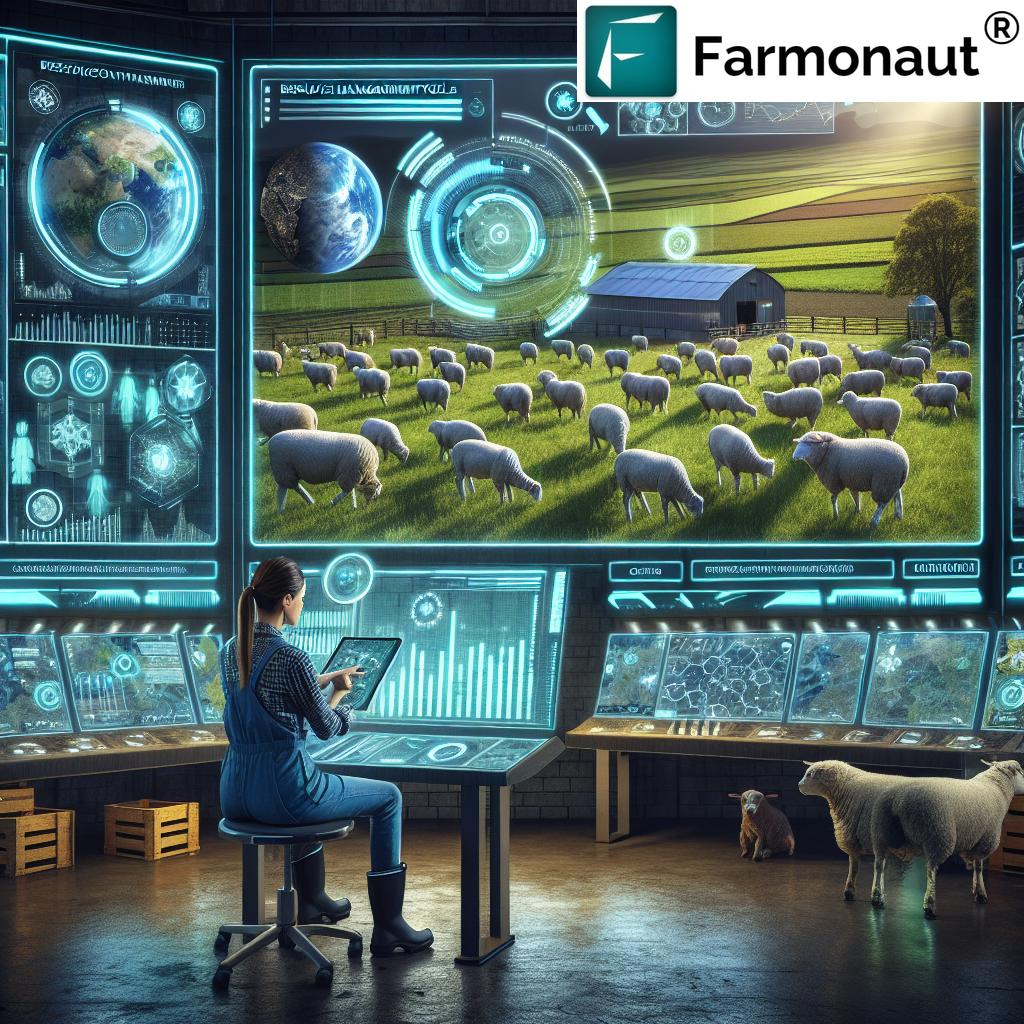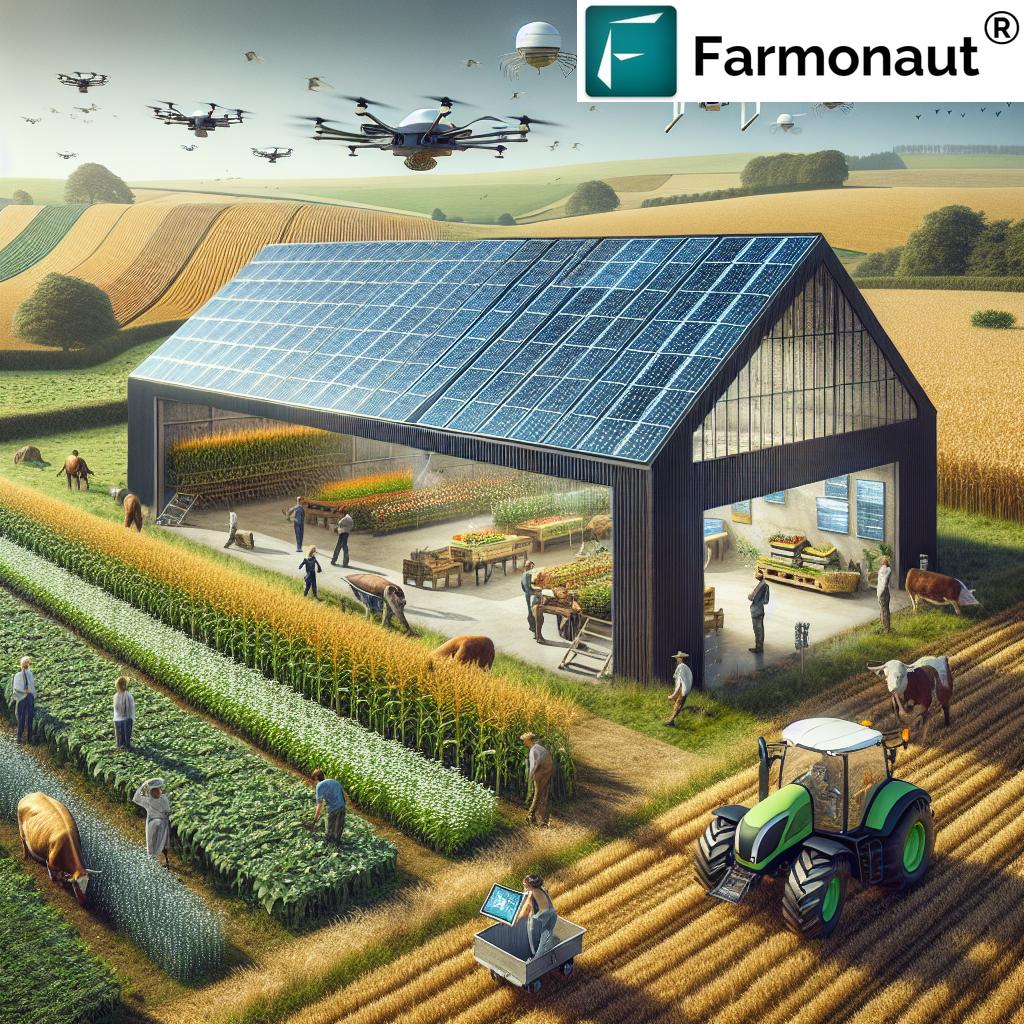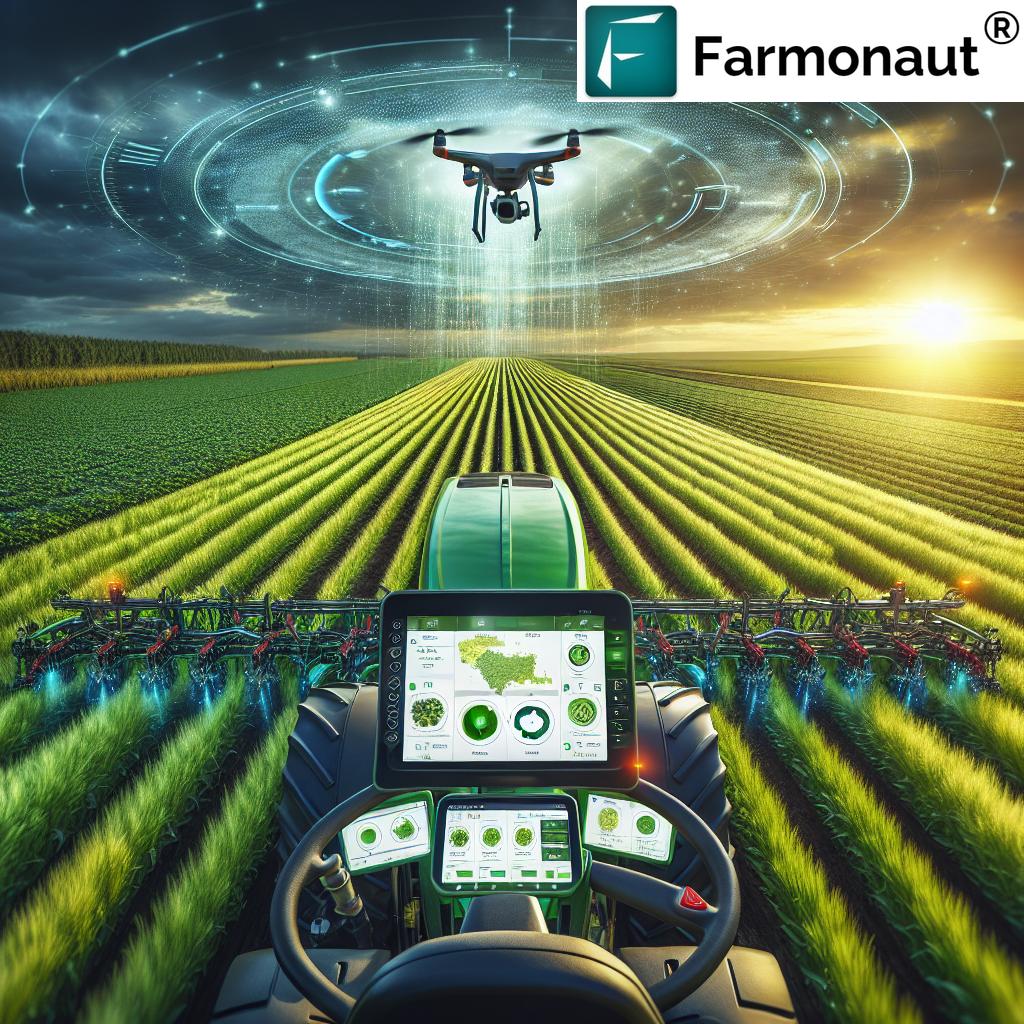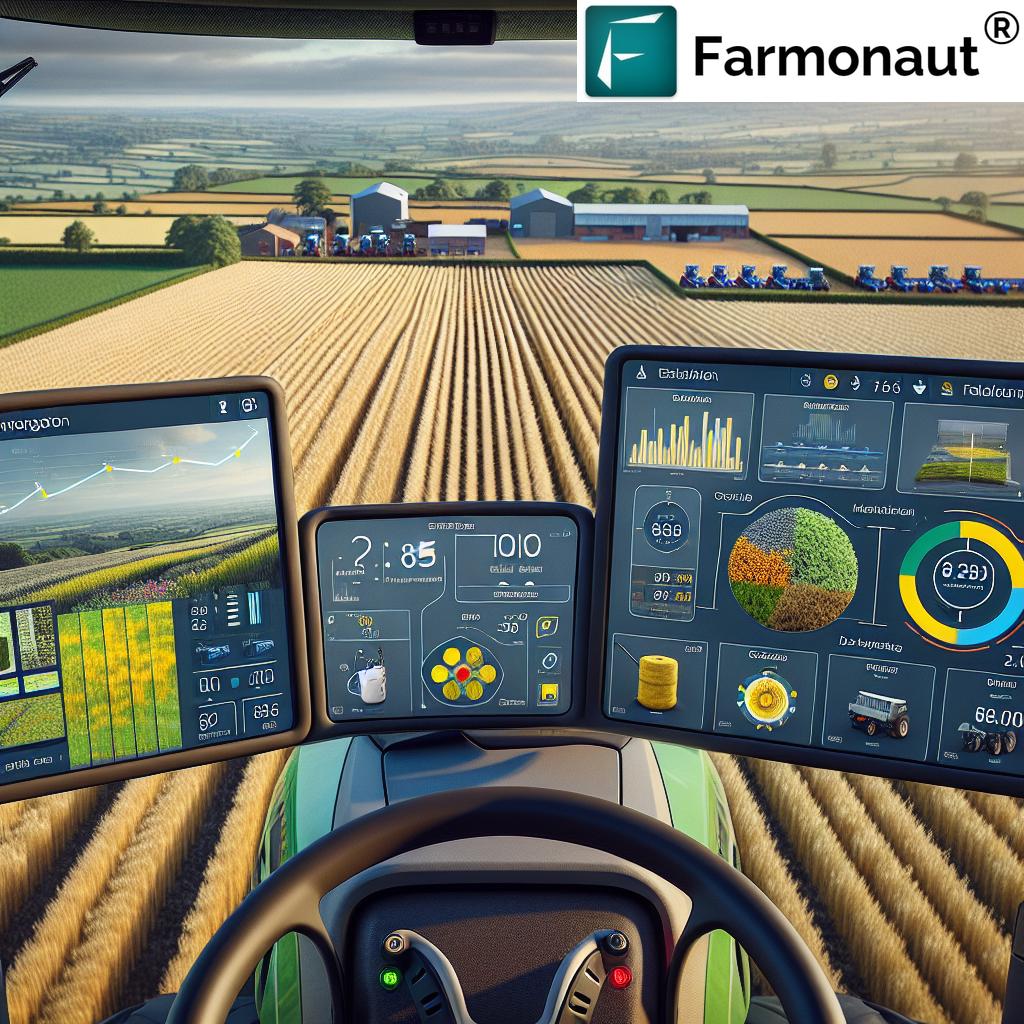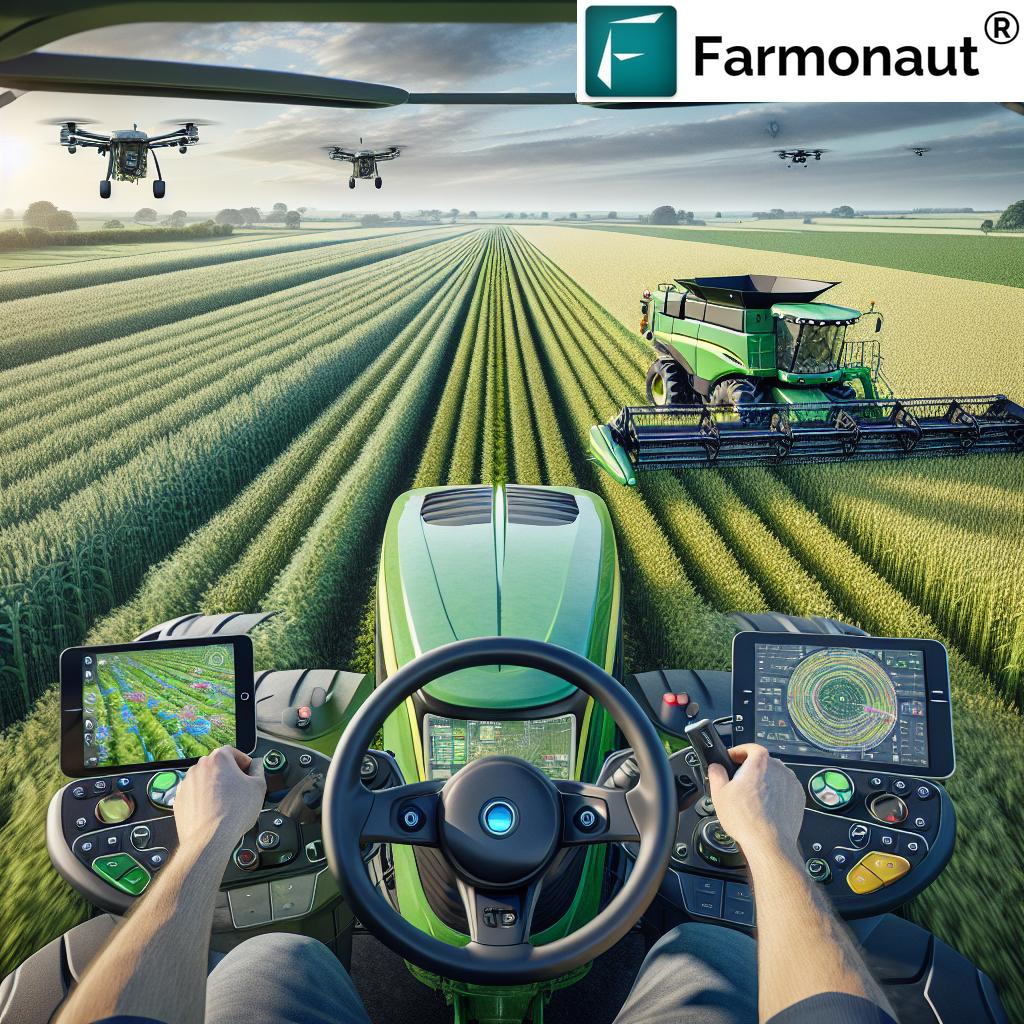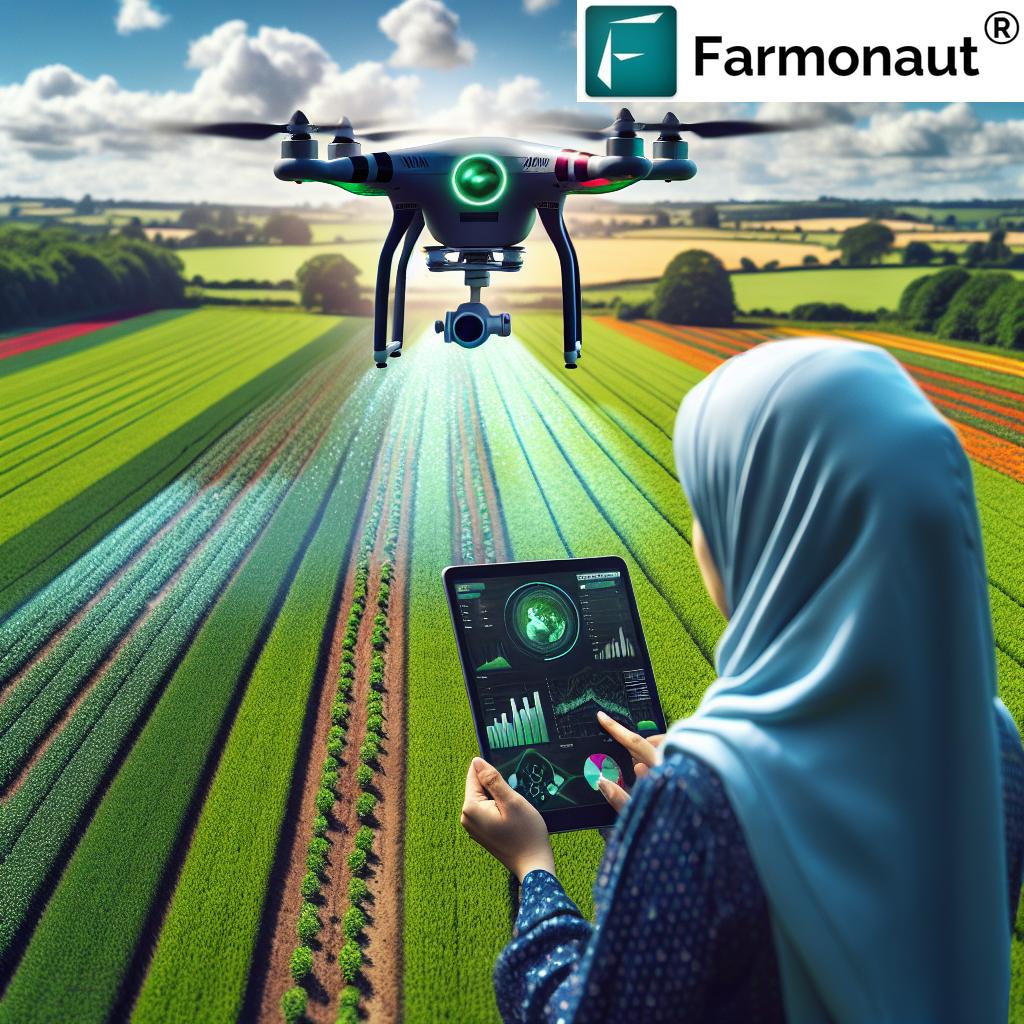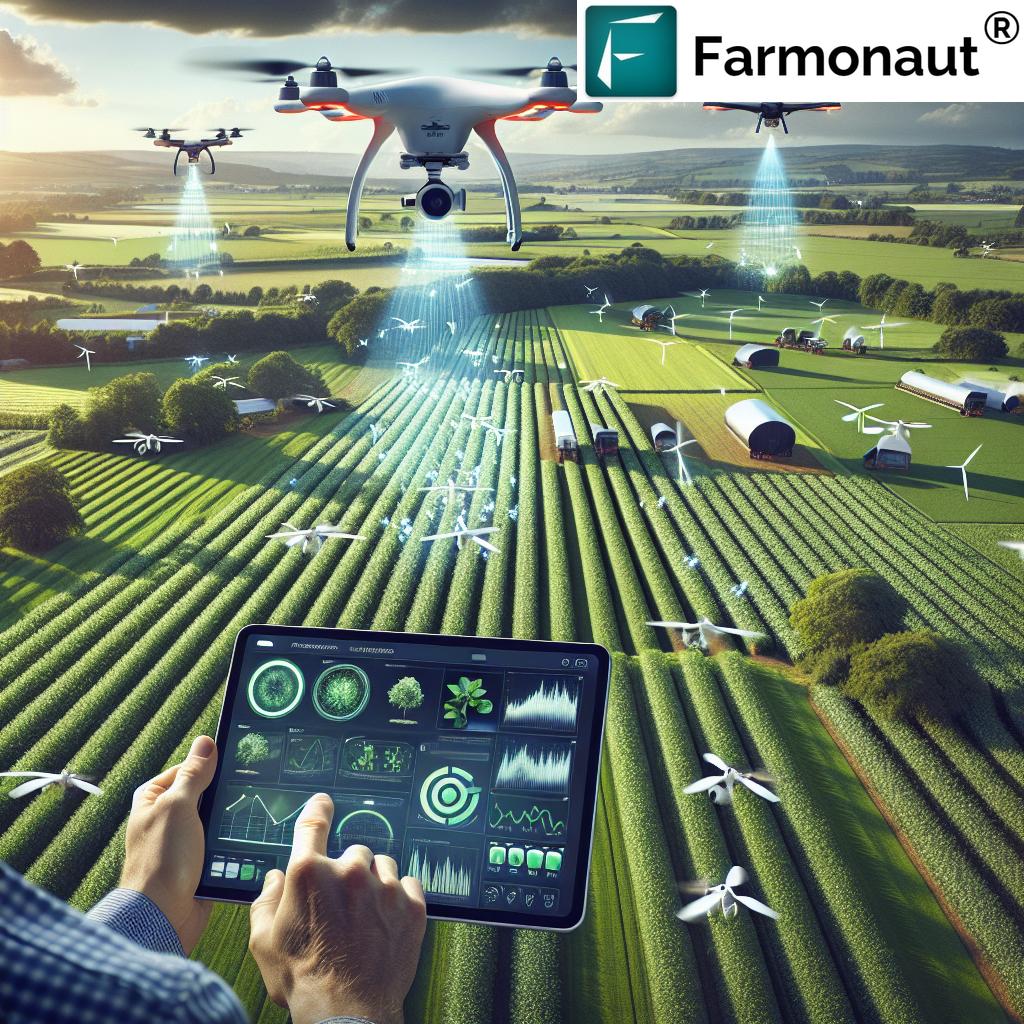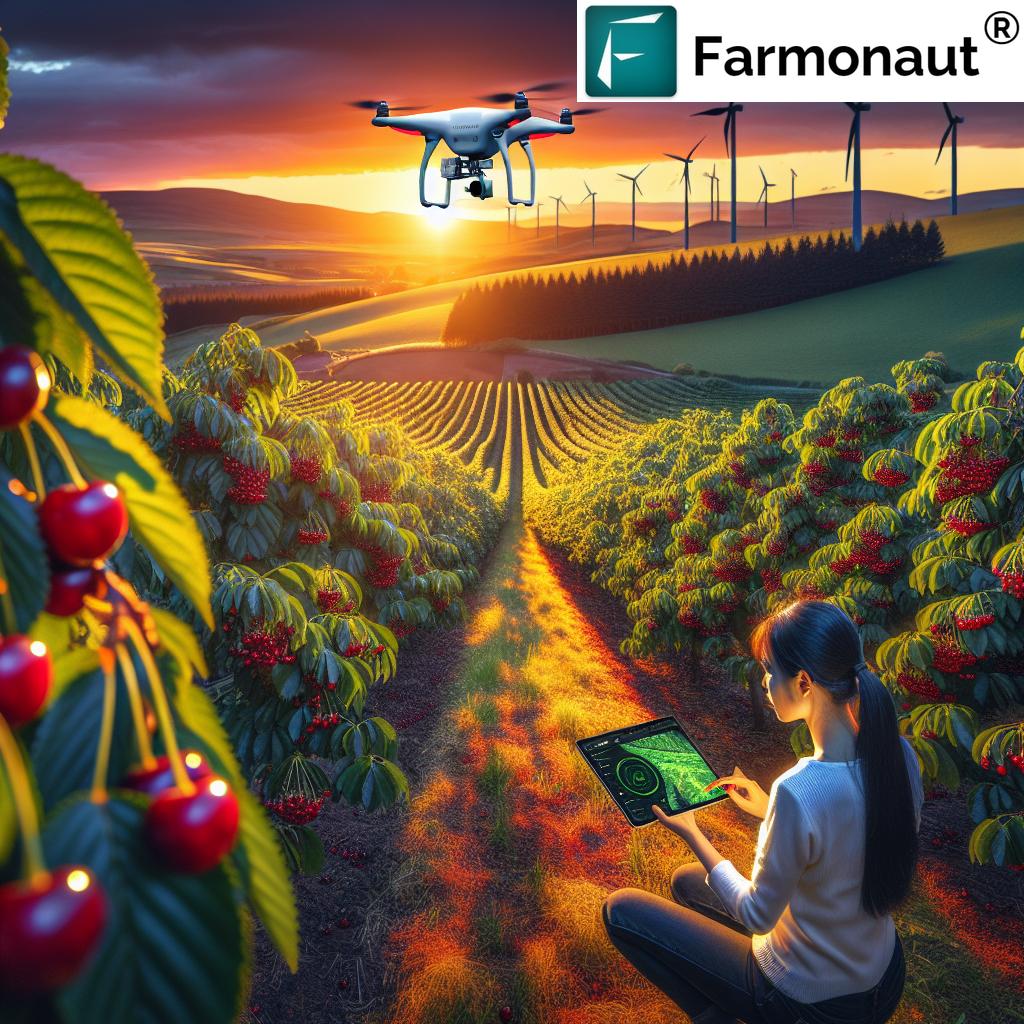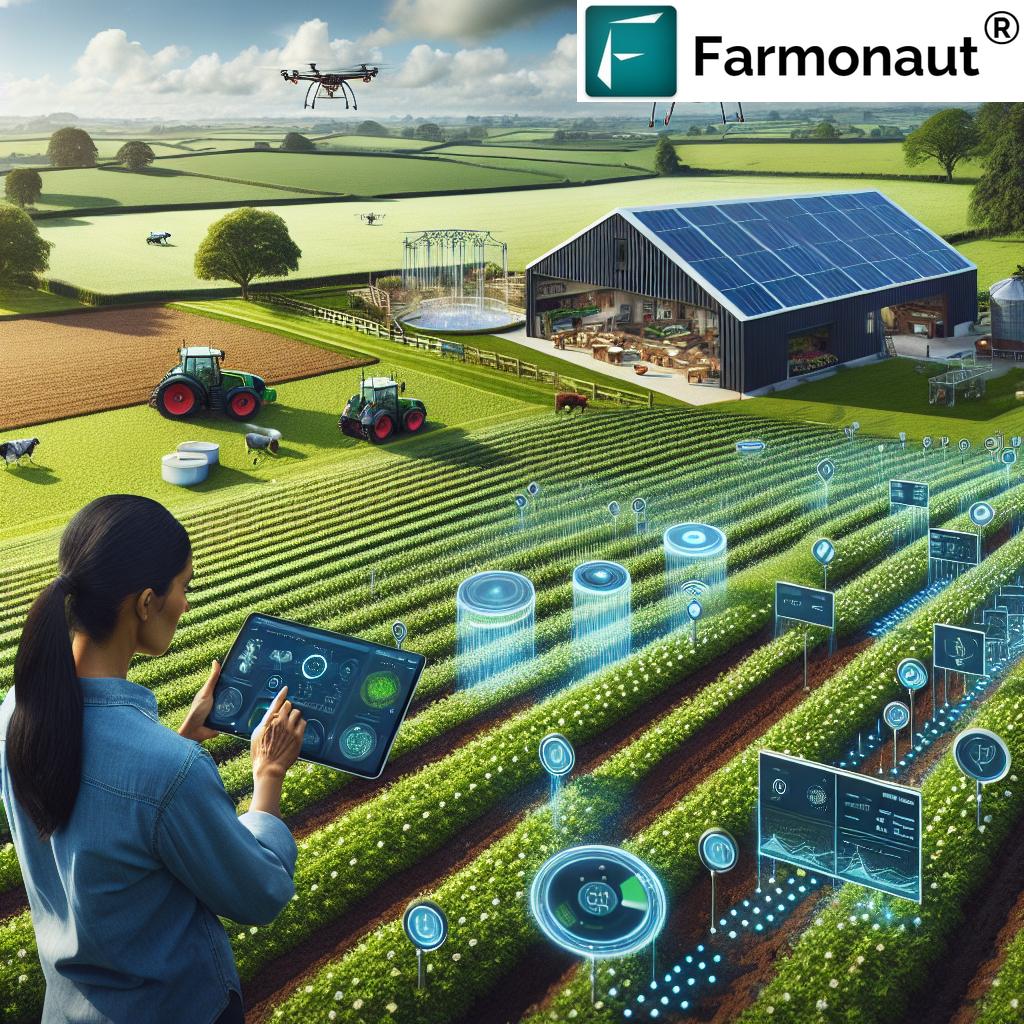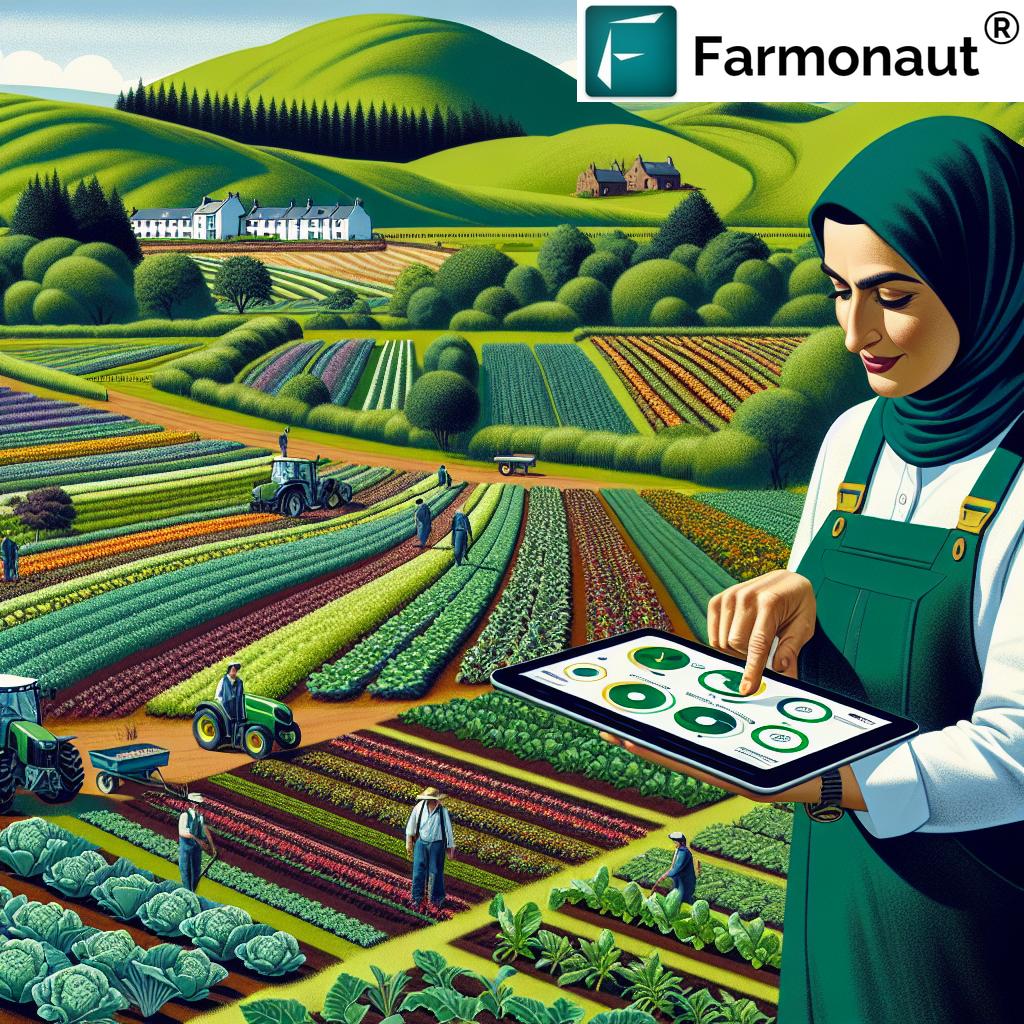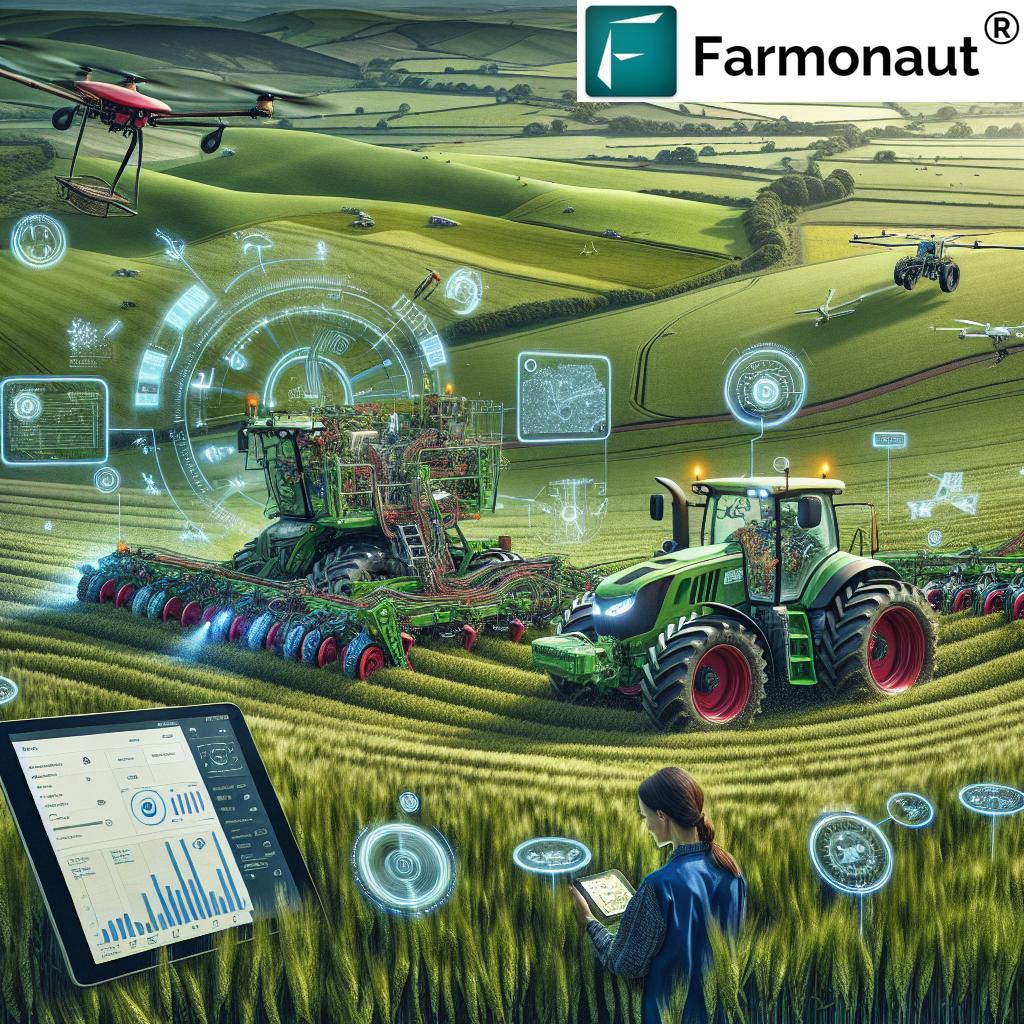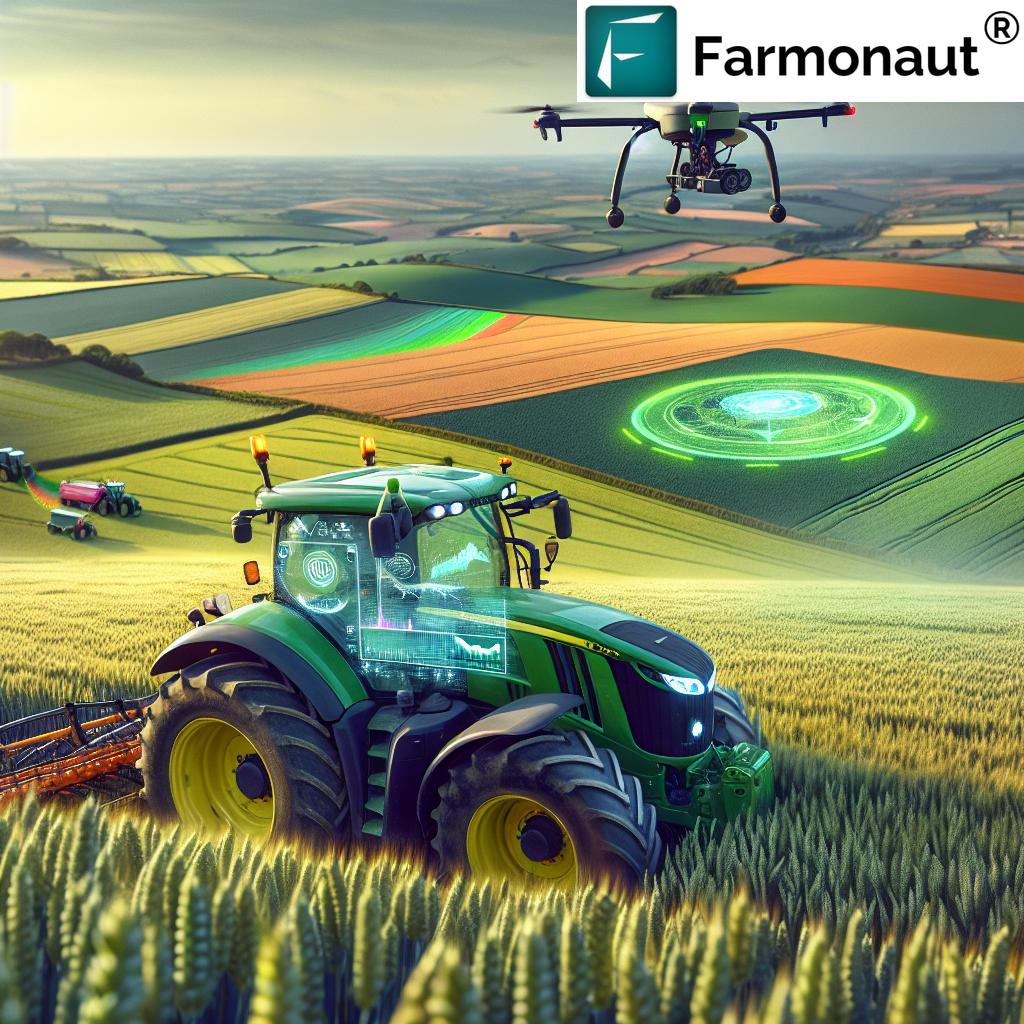Revolutionizing UK Farming: How Weather-Resistant Drones and Precision Agriculture Are Transforming Crop Management
“Weather-resistant agricultural drones can operate in challenging conditions, significantly increasing usable flight days for farmers.”
In the ever-evolving landscape of UK agriculture, we are witnessing a remarkable transformation driven by cutting-edge technology. At the forefront of this revolution are weather-resistant drones and precision agriculture techniques, which are reshaping how farmers manage their crops and livestock. As representatives of Farmonaut, we are excited to explore how these innovations are changing the face of farming in the United Kingdom.
The Dawn of Weather-Resistant Drones in UK Agriculture
The unpredictable British weather has long been a challenge for farmers across the country. However, with the advent of weather-resistant drones, we’re seeing a significant shift in how agricultural operations are conducted. These robust unmanned aerial vehicles (UAVs) are designed to withstand the often harsh and changeable conditions typical of the UK climate.
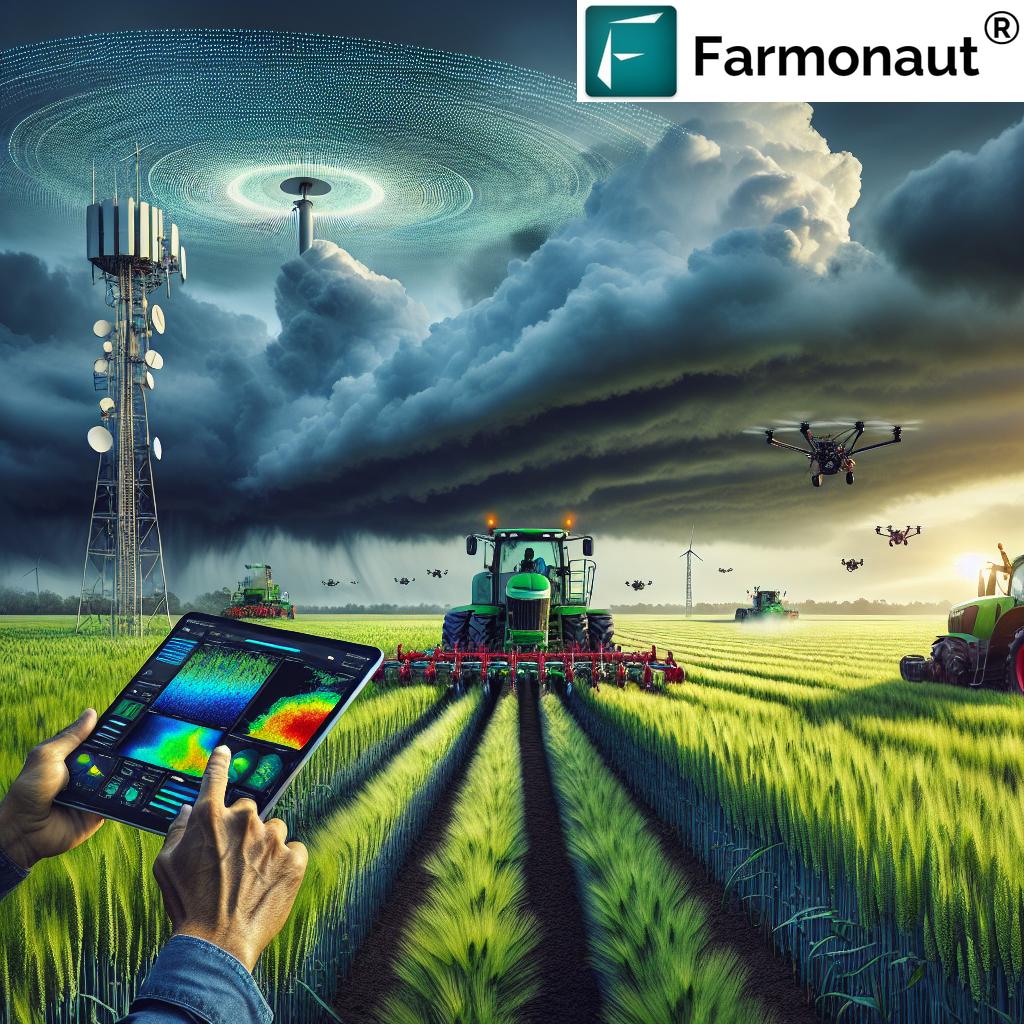
Weather-resistant drones are equipped with advanced features that allow them to operate in conditions that would ground traditional UAVs. These include:
- Reinforced frames to withstand strong winds
- Waterproof components to protect against rain and moisture
- Improved stabilization systems for smoother flight in turbulent air
- Enhanced battery life for extended operation in cold temperatures
The ability to fly in diverse weather conditions significantly extends the number of usable flight days for farmers. This increased operational window is crucial for timely data collection and farm management decisions.
Precision Agriculture: A Game-Changer for UK Farmers
Precision agriculture is revolutionizing the way we approach farming in the UK. By leveraging data-driven insights and advanced technologies, farmers can make more informed decisions about their crops and livestock. This approach leads to increased efficiency, reduced waste, and improved yields.
“Multispectral sensors on farming drones enable comprehensive crop health assessments, providing real-time data for optimal management decisions.”
At the heart of precision agriculture are the multispectral sensors equipped on modern agricultural drones. These sensors capture data across various light spectrums, providing a wealth of information about crop health, soil conditions, and potential issues such as pest infestations or nutrient deficiencies.
Key Benefits of Precision Agriculture for UK Farmers:
- Optimized resource allocation (water, fertilizers, pesticides)
- Early detection of crop stress and disease
- Improved crop yield predictions
- Enhanced livestock management through aerial monitoring
- Reduced environmental impact through targeted interventions
By integrating precision agriculture techniques with weather-resistant drone technology, UK farmers are better equipped to face the challenges of modern agriculture while maintaining sustainable practices.
The Role of Farmonaut in UK’s Agricultural Revolution
At Farmonaut, we are committed to providing cutting-edge solutions that empower farmers with the tools they need to succeed in this new era of agriculture. Our satellite-based farm management platform complements the use of weather-resistant drones, offering a comprehensive approach to precision farming.
Through our platform, UK farmers can access:
- Real-time crop health monitoring
- AI-driven advisory systems for farm management
- Weather forecasts and historical data analysis
- Resource management tools for optimized farming operations
To experience the power of Farmonaut’s technology firsthand, we invite you to explore our web application:
Weather-Resistant Drones: A Closer Look at the Technology
The development of weather-resistant drones marks a significant milestone in agricultural technology. These UAVs are built to withstand the diverse weather conditions found across the UK, from the misty highlands of Scotland to the windswept fields of East Anglia.
Key Features of Weather-Resistant Agricultural Drones:
- Rugged Construction: Designed to operate in winds up to 40 mph
- Waterproof Rating: Typically IP65 or higher, allowing flight in light rain
- Temperature Tolerance: Capable of functioning in temperatures ranging from -10°C to 40°C
- Extended Flight Time: Advanced battery technology for longer missions
- Precision Sensors: Multispectral and thermal imaging capabilities for comprehensive data collection
These features enable farmers to conduct aerial surveys and collect crucial data even in conditions that would have previously halted operations. This resilience is particularly valuable in the UK, where weather patterns can be unpredictable and rapidly changing.
Transforming Crop Management with Drone Technology
The integration of weather-resistant drones into UK farming practices is transforming crop management in several key areas:
1. Crop Health Monitoring
Drones equipped with multispectral sensors can detect early signs of crop stress, disease, or nutrient deficiencies. This early detection allows farmers to intervene promptly, potentially saving entire crops from failure.
2. Precision Irrigation
By analyzing thermal imagery collected by drones, farmers can identify areas of water stress in their fields. This information enables the implementation of targeted irrigation strategies, conserving water and improving crop yields.
3. Pest and Weed Management
Drones can spot pest infestations or weed growth patterns that may not be visible from ground level. This aerial perspective allows for more efficient and targeted application of pesticides and herbicides, reducing overall chemical usage.
4. Yield Estimation
Advanced imaging techniques and AI-powered analysis can provide accurate yield estimates well before harvest time. This information is invaluable for planning logistics, storage, and marketing strategies.
At Farmonaut, we complement these drone-based insights with our satellite imagery analysis, providing a comprehensive view of farm health and productivity. Our Android and iOS apps make it easy for farmers to access this vital information on the go:
The Impact on UK Farming Practices
The adoption of weather-resistant drones and precision agriculture techniques is having a profound impact on UK farming practices:
- Increased Efficiency: Farmers can cover large areas quickly, reducing the time and labor required for field inspections.
- Resource Optimization: Precise application of inputs (water, fertilizers, pesticides) leads to cost savings and reduced environmental impact.
- Data-Driven Decision Making: Access to real-time, accurate data empowers farmers to make informed choices about crop management.
- Improved Sustainability: By minimizing resource use and reducing chemical applications, these technologies support more sustainable farming practices.
- Enhanced Profitability: Through improved yields and reduced input costs, farmers can potentially increase their profit margins.
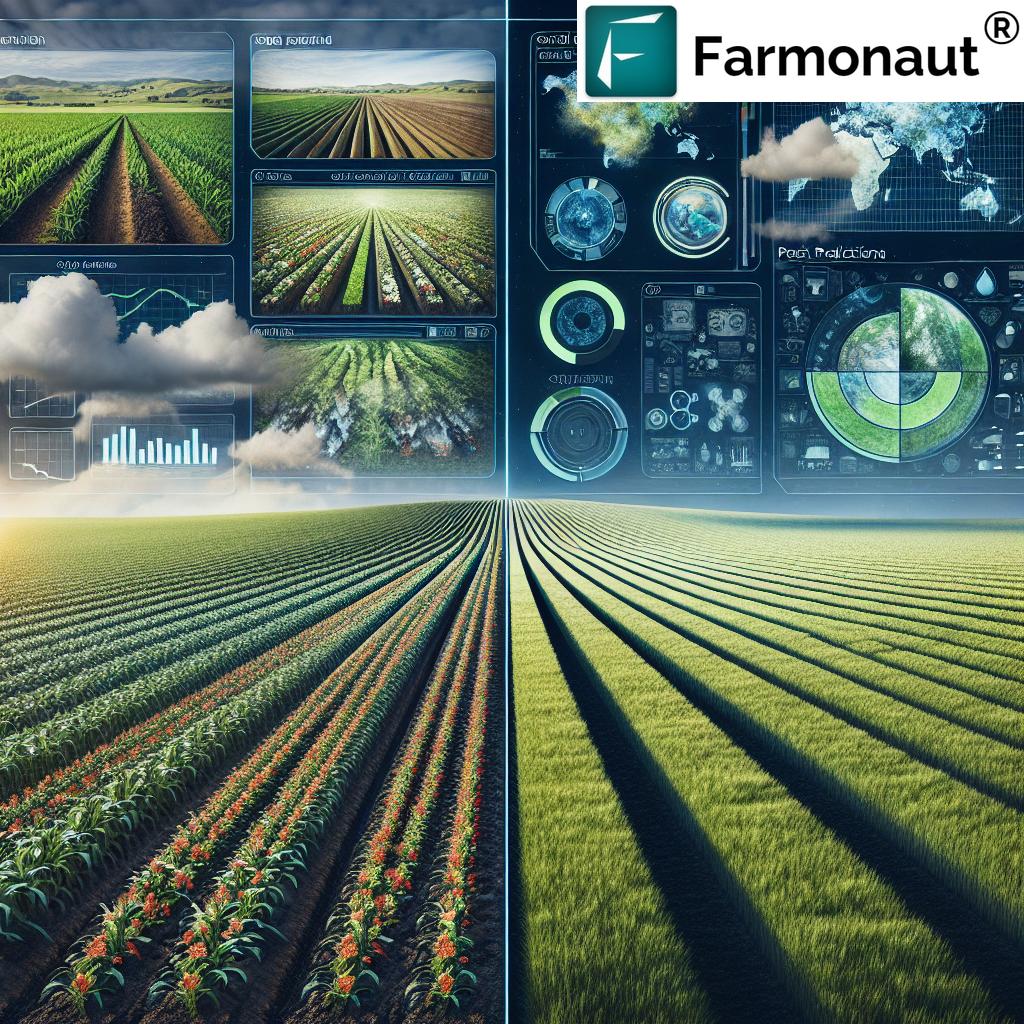
Overcoming Challenges in UK Agriculture
While the benefits of weather-resistant drones and precision agriculture are clear, UK farmers face several challenges in adopting these technologies:
1. Initial Investment
The cost of acquiring advanced drones and associated software can be substantial. However, many farmers find that the long-term benefits outweigh the initial investment.
2. Technical Expertise
Operating drones and interpreting the data they collect requires specialized knowledge. Training and support are crucial for successful implementation.
3. Regulatory Compliance
UK drone regulations are evolving, and farmers must stay informed about the latest rules governing UAV usage in agriculture.
4. Data Management
The volume of data generated by drones and other precision agriculture tools can be overwhelming. Effective data management and analysis are essential for deriving actionable insights.
At Farmonaut, we address these challenges by offering comprehensive support and training to our users. Our platform is designed to be user-friendly, making it easier for farmers to integrate advanced technologies into their operations.
The Future of UK Farming: Integrating Drones and Satellite Technology
As we look to the future of UK agriculture, the integration of weather-resistant drones with satellite-based monitoring systems like Farmonaut’s platform presents exciting possibilities:
- Comprehensive Farm Monitoring: Combining high-resolution drone imagery with broad-scale satellite data provides a complete picture of farm health.
- Predictive Analytics: By analyzing historical data from both sources, we can develop more accurate predictive models for crop yields and potential issues.
- Automated Farm Management: Integration with farm management software and IoT devices could lead to increasingly automated farming systems.
- Climate Change Adaptation: The wealth of data collected can help farmers adapt their practices to changing climate conditions more effectively.
For developers and businesses looking to integrate these advanced agricultural technologies into their own systems, Farmonaut offers API access to our satellite and weather data:
Comparative Analysis: Weather-Resistant Drones vs. Traditional Agricultural Methods
To illustrate the transformative impact of weather-resistant drones on UK farming, let’s compare them to traditional agricultural methods:
| Aspect | Weather-Resistant Drones | Traditional Methods | Improvement |
|---|---|---|---|
| Usable Days per Year | Up to 300 days | Approximately 200 days | Up to 50% more usable days |
| Data Collection Accuracy | 95% accuracy in crop health assessment | 60-70% accuracy through visual inspection | 25-35% increase in accuracy |
| Resource Efficiency | Targeted application reducing input use by up to 30% | Broad application of inputs | Up to 30% reduction in resource use |
| Crop Health Monitoring | Daily monitoring possible | Weekly or bi-weekly inspections | 3-7 times more frequent monitoring |
| Cost-Effectiveness | High initial investment, low ongoing costs | Lower initial costs, higher labor expenses | Long-term savings of up to 20% on operational costs |
This comparison clearly demonstrates the significant advantages that weather-resistant drones offer to UK farmers, particularly in terms of efficiency, accuracy, and resource management.
Case Studies: Success Stories from UK Farms
While we can’t provide specific case studies, the impact of weather-resistant drones and precision agriculture on UK farms has been significant. Farmers across the country have reported:
- Increases in crop yields of up to 15% through more precise management
- Reductions in pesticide use by as much as 30% due to targeted application
- Water savings of 20-25% through improved irrigation practices
- Labor cost reductions of up to 30% by automating certain monitoring tasks
These results highlight the potential for weather-resistant drones and precision agriculture to transform UK farming practices, leading to more sustainable and profitable operations.
The Role of AI and Machine Learning in Modern Agriculture
Artificial Intelligence (AI) and Machine Learning (ML) play crucial roles in maximizing the benefits of weather-resistant drones and precision agriculture. These technologies enable:
- Automated Image Analysis: AI algorithms can quickly process vast amounts of drone imagery, identifying issues that might be missed by human observers.
- Predictive Modeling: ML models can forecast crop yields, predict disease outbreaks, and anticipate weather patterns with increasing accuracy.
- Optimization Algorithms: AI can suggest optimal planting patterns, irrigation schedules, and harvest times based on historical and real-time data.
- Autonomous Systems: Machine learning is paving the way for more autonomous farm equipment, including self-navigating drones and tractors.
At Farmonaut, we integrate AI and ML into our platform to provide UK farmers with advanced insights and recommendations, enhancing the value of the data collected by drones and satellites.
Environmental Impact and Sustainability
The adoption of weather-resistant drones and precision agriculture techniques is not just about improving productivity; it’s also about promoting sustainability in UK farming. These technologies contribute to environmental conservation in several ways:
- Reduced Chemical Use: Precise application of pesticides and fertilizers minimizes runoff and soil contamination.
- Water Conservation: Targeted irrigation based on drone and satellite data helps conserve water resources.
- Soil Health: By optimizing inputs and reducing compaction from heavy machinery, these techniques help preserve soil quality.
- Biodiversity Protection: More precise farming practices can help protect wildlife habitats and promote biodiversity on farmland.
- Carbon Footprint Reduction: Efficient resource use and reduced machinery operation can lower the overall carbon footprint of farming operations.
These environmental benefits align with the UK’s goals for sustainable agriculture and contribute to the long-term viability of the farming sector.
The Economic Impact on UK Agriculture
The integration of weather-resistant drones and precision agriculture techniques is having a significant economic impact on UK agriculture:
- Increased Profitability: Through improved yields and reduced input costs, farmers can potentially increase their profit margins.
- Job Creation: The need for skilled technicians, data analysts, and drone operators is creating new job opportunities in rural areas.
- Export Potential: As UK farms become more efficient and productive, there’s potential for increased agricultural exports.
- Technology Sector Growth: The demand for agricultural technology is driving innovation and growth in the UK’s tech sector.
These economic benefits contribute to the overall strength and resilience of the UK’s agricultural industry.
FAQs: Weather-Resistant Drones and Precision Agriculture in UK Farming
- Q: How much does it cost to implement drone technology on a UK farm?
A: The cost can vary widely depending on the size of the farm and the specific technology chosen. Initial investments typically range from £5,000 to £20,000 for a comprehensive setup. - Q: Are there any regulations governing the use of drones in UK agriculture?
A: Yes, the UK Civil Aviation Authority (CAA) regulates drone usage. Farmers must comply with drone registration requirements and follow guidelines for commercial drone operations. - Q: How long does it take to see a return on investment when implementing these technologies?
A: While it varies, many farmers report seeing a return on investment within 1-3 years through increased yields and reduced input costs. - Q: Can weather-resistant drones operate in all UK weather conditions?
A: While they are designed to withstand most weather conditions, extreme events like heavy storms or very high winds may still ground these drones for safety reasons. - Q: How does Farmonaut’s platform integrate with drone technology?
A: Farmonaut’s platform can analyze and interpret data collected by drones, integrating it with satellite imagery and other data sources to provide comprehensive farm management insights.
Conclusion: Embracing the Future of UK Agriculture
The integration of weather-resistant drones and precision agriculture techniques represents a significant leap forward for UK farming. These technologies offer the potential for increased productivity, improved sustainability, and enhanced profitability in the face of challenging weather conditions and economic pressures.
As we continue to develop and refine these tools, the future of UK agriculture looks increasingly data-driven, efficient, and environmentally conscious. At Farmonaut, we’re committed to supporting this transformation by providing cutting-edge satellite-based solutions that complement and enhance the capabilities of weather-resistant drones.
We invite UK farmers, agronomists, and agricultural businesses to explore how Farmonaut’s platform can help them leverage these advanced technologies and stay at the forefront of modern agriculture. Together, we can build a more resilient and sustainable farming future for the United Kingdom.





